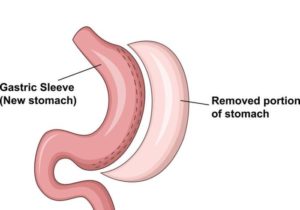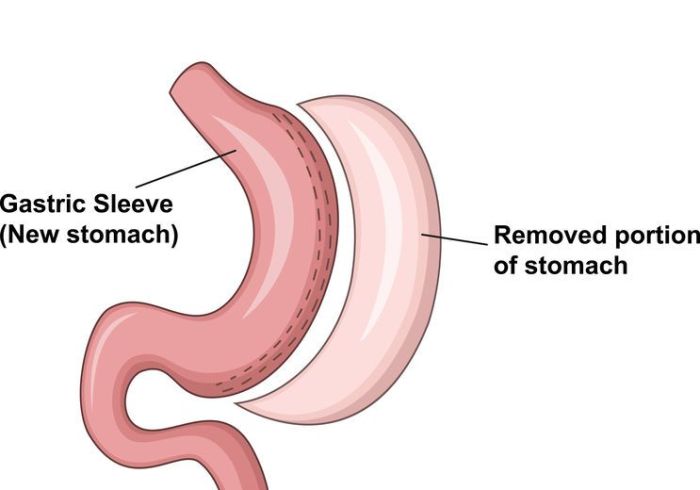 Because of the possibilities of complications with most bariatric surgeries, they should be the last resort after other forms of weight loss methods have failed. Furthermore, they are not just performed on just anybody, they are meant for people whose BMI is 35 and have tried all other weight loss practices and have failed. They also have to undergo serious scrutiny to ascertain that they do not have any underlying issues that might cause serious complications. This article gives an analysis of how long it takes to be approved for gastric sleeve surgery.
Because of the possibilities of complications with most bariatric surgeries, they should be the last resort after other forms of weight loss methods have failed. Furthermore, they are not just performed on just anybody, they are meant for people whose BMI is 35 and have tried all other weight loss practices and have failed. They also have to undergo serious scrutiny to ascertain that they do not have any underlying issues that might cause serious complications. This article gives an analysis of how long it takes to be approved for gastric sleeve surgery.
- Educational Seminar
Before the surgery, an education seminar is organized, which is meant to educate the patient on everything you need to know about gastric sleeve surgery. In this process, you will be presented with videos so that you can be aware of the risks, benefits, the process and the possible complications that may arise after the surgery.
- Consultation with a Surgeon
Before you are operated, you must have a sit down with your surgeon, a time during which the surgeon will examine your health history. They will also ask you questions regarding your wellbeing to know whether you are an eligible candidate for this type of surgery. The surgeon then forwards your medical file to a multidisciplinary approval committee for further scrutiny.
- Nutritional and Behavior Modification Class
The next step involves you undergoing a behavior and nutritional modification class so that you can be educated on what habits to adopt and what habits to drop, both behavioral and nutritional wise. This is because there are foods you need to drop, sometime before and after the surgery. There are also habits you may need to stop like taking alcohol.
- Consultation with a Nutritionist and Psychologist
This step involves the patient undergoing a consultation with a nutritionist and a psychological counselor. This is meant to recommend the necessary foods to take, what amounts and how often you should take that particular food. The psychologist is meant to help you get prepared for the surgery so that you do away with any fears. This approximately takes 1-2 weeks after the nutritional class.
- Preliminary Tests and Screenings
Conclusive preliminary tests and screenings are run to ascertain any underlying issues with your health. These include blood, urinalysis, nicotine screen, blood type and screen, HCG for menstruating women and history and physical exam. The test results take up to 6 weeks to come back.
- Multidisciplinary Review Approval
After the tests and screenings, results are out. The file is passed on to a multidisciplinary approval review committee for further scrutiny. This step is important because it is at this stage that the test results are analyzed to ascertain the underlying issues with your health and determine if you are eligible for the surgery or not.
- Insurance Authorization Process
After you have been approved for the surgery by the multidisciplinary review approval, the next process involves contacting your insurance provider for authorization before the surgery is performed on you. This is meant to negotiate the payment process, in which case if your insurance provider does not authorize the surgery, you will be required to cover the charges directly from your pocket. This process takes approximately 30 days.
- Pre-Operative Class
After your insurance has authorized the surgery, you will then undergo a pre-operative education class to educate and remind you on than necessary nutritional and behavior that you should adopt, before and after the surgery. Without this class, then the patient will not know the right nutritional and behavior habits to adopt and drop. This happens approximately 1-2 weeks before your scheduled surgery.
- Pre-Operative Workup
A comprehensive test and screening is done again, and this takes place approximately 5 days before your scheduled surgery date. These tests are supposed to act as control tests for the first series of tests that were previously done in the earlier stage of this process. These tests include blood type screening, nicotine screening, physical and health history, urinalysis, BCG and complete blood count.
The next step is the surgical procedure itself. A licensed medical surgeon performs it, with the patient sedated. It usually takes around 1-3 hours and 2-3 days stay in the hospital bed after the surgery. The stay in the hospital varies depending on the possibilities of complications that may arise and the patient’s health strength. However, there is no cause for alarm since on normal cases, there should be no complications, not unless something unusual happened, and this is very rare. The most common side effects are nausea and mild abdominal pains.
The path to weight loss surgery can be long; you want to make sure you’re working with a team of professionals who want what’s best for you and your health. Request a consultation with Dr. Majid here today, or give us a call at (973) 888-1085 to get started.


